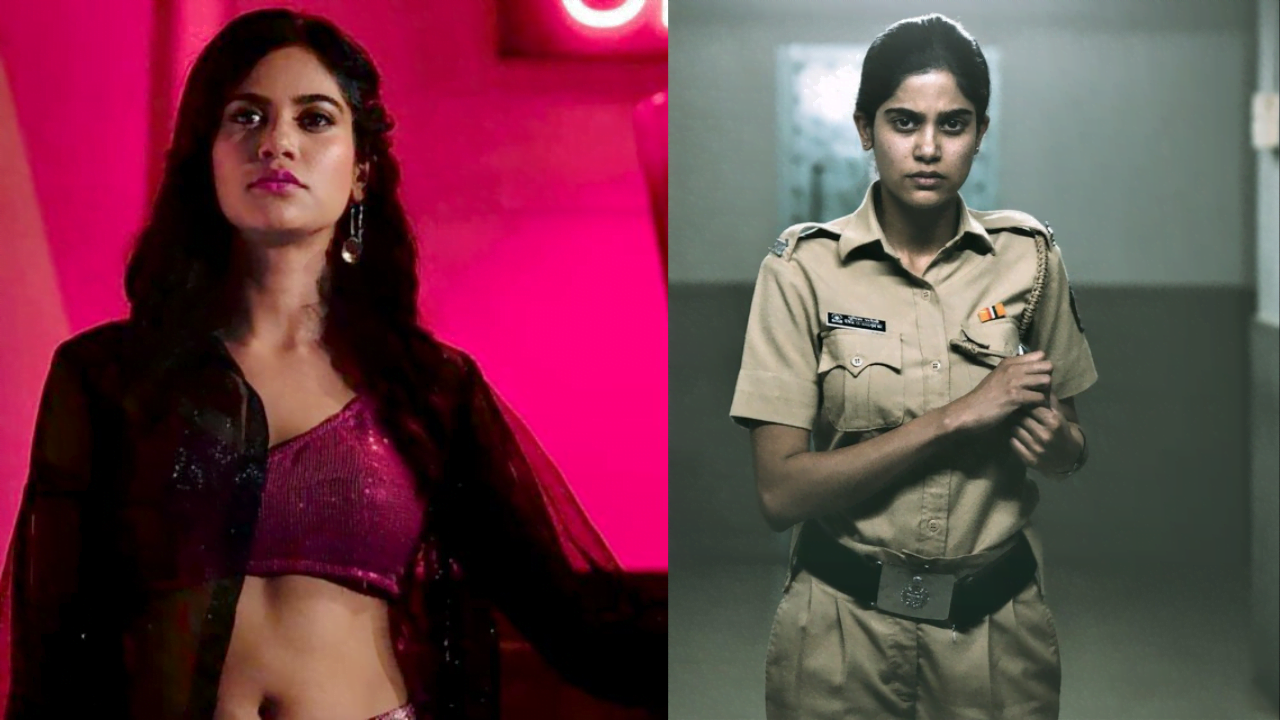Spoilers ahead!
The badass female protagonist seems to be getting increasingly popular in Indian film and television. However, with these leading ladies bringing in views and shares for multiple OTT platforms, there are many controversial stances that come along with them. On 20th March 2020, Imtiaz Ali and Divya Johry created ‘She‘, as Netflix keeps pumping out crime dramas one after the other.
‘She‘ returned for a second season two years later, on 17th June 2022 with its stars Aaditi Pohankar and Kishore Kumar G. The series follows the story of a female constable in Mumbai, Bhumika Pardeshi, more commonly referred to as Bhumi.
Stuck in the immobility of lower-middle-class life, she struggles to care for her family as well as deal with her predominantly patriarchal job. Through the progression of the series, we can see an interesting if not atypical character arc for Bhumi as she is put into an undercover operation of catching a drug lord, in the role of a prostitute. While the show admittedly does dive into a few cheap thrills of steamy sex scenes, the viewer gets to see Bhumi, take control of her sexuality and even use it to her own benefit.

Having an unsuccessful sex life with her own husband, Bhumi initially fumbles here and there in the promiscuous profession she is supposedly in. She meets Sasya, a drug dealer played by Vijay Varma, pleasantly surprised by her sexual encounter with him.
Bhumi lures Sasya into getting caught and through a planned operation finally meets Nayak. We see the exchange between Bhumi and Nayak with personal, intimate notes and eventually Nayak takes her away from all contact with the outside world to live with him.
From children’s story of Beauty and the Beast to the lustful 365 Days, all seemingly swooning at the infamous concept of Stockholm Syndrome. “Stockholm syndrome, a psychological response wherein a captive begins to identify closely with his or her captors, as well as with their agenda and demands.”
Psychologists believe the bond is created as the captive is relieved at the thought of not being harmed or killed and is ironically grateful to the captor, only takes a few days for this bond to form, all based on the survival instincts of a person, an essential theme within the show.

Another unconventional take on the show is its portrayal of a woman’s sexuality. Men are always confident and even supported in their sexual endeavours. Nayak’s very own weakness is his lust for women and prostitutes. However, when women attempt to dip their toes in these waters, the words ‘slut‘ or ‘whore‘ are quick to erupt.
With the increased exposure of children and adolescents to sex through pornography, there is a skewed perception that develops as the majority of porn is focused on male desire. This leads to underestimation and ignorance of female pleasure.
Women focus on men’s needs while men are unaware of women’s needs. Coco De Mer CEO, Lucy Litwack states, “When a woman is allowed to explore her desires and embrace the complexity of sexual pleasure in an environment that is welcoming, empowering and indulgent (and without fear of being judged) it can hugely boost a woman’s confidence and, at the same time, lead to a more equal relationship with men.”

‘She‘ makes a bold move in the manner that Bhumi’s independence is almost reflective of her growing sexual confidence as she entangles herself with different men. Her survival instincts and her desire to truly live for herself become her priority. At the end of season one she reveals her identity to Nayak, and in an astounding twist confirms her desire to join him in a life of crime.
While this twist was unexpected and unconventional it is perhaps a little disappointing that Bhumi believed she could find power, success and love by turning to a life of crime due to the hard life she was sick of suffering as a policewoman.
In general, policing is seen as a profession that is best left in the hands of men due to the need for physical strength, aggression and inflexible hours. Many believe that women do not have the capacity to handle the intensity of a life of danger and crime.

An increased number of women working in law enforcement is essential in battling violence against women, sexual assault, and improving police-community relations. This can take place with the increase in employment of policewomen which can only be encouraged with better treatment.
Season 2 explores Bhumi’s life as a criminal and delves deeper into her relationship with Nayak as she tries to balance both her duty as a policewoman but also her life with Nayak. Now that she knows what she wants, her only priority is to find a way to survive. Her relationship with Nayak gave her confidence, power and security, which she has never had before.
At the end of the show, after becoming the person Nayak wanted her to be, killing him, Bhumi is once again faced with the decision of going back to her regular life or grabbing the empty throne left by Nayak and she chooses the latter. As a leader of the operation, with power and respect in hand, she feels as though she is right where she belongs.





